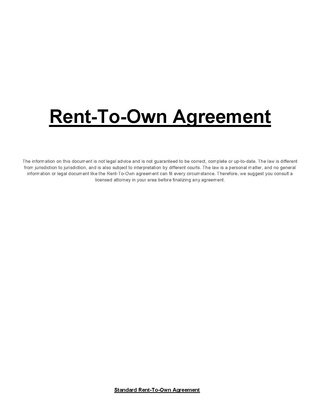Related Research Articles
This aims to be a complete list of the articles on real estate.

A lease is a contractual arrangement calling for the user to pay the owner for the use of an asset. Property, buildings and vehicles are common assets that are leased. Industrial or business equipment are also leased. Basically a lease agreement is a contract between two parties: the lessor and the lessee. The lessor is the legal owner of the asset, while the lessee obtains the right to use the asset in return for regular rental payments. The lessee also agrees to abide by various conditions regarding their use of the property or equipment. For example, a person leasing a car may agree to the condition that the car will only be used for personal use.
Real estate appraisal, property valuation or land valuation is the process of developing an opinion of value for real property. Real estate transactions often require appraisals because they occur infrequently and every property is unique, unlike corporate stocks, which are traded daily and are identical. The location also plays a key role in valuation. However, since property cannot change location, it is often the upgrades or improvements to the home that can change its value. Appraisal reports form the basis for mortgage loans, settling estates and divorces, taxation, and so on. Sometimes an appraisal report is used to establish a sale price for a property.
A bridge loan is a type of short-term loan, typically taken out for a period of 2 weeks to 3 years pending the arrangement of larger or longer-term financing. It is usually called a bridging loan in the United Kingdom, also known as a "caveat loan," and also known in some applications as a swing loan. In South African usage, the term bridging finance is more common, but is used in a more restricted sense than is common elsewhere.

A Lease-Purchase Contract, also known as a lease purchase agreement or rent-to-own agreement, allows consumers to obtain durable goods or rent-to-own real estate without entering into a standard credit contract. It is a shortened name for a lease with option to purchase contract. For real estate, a lease purchase contract combines elements of a traditional rental agreement with an exclusive right of first refusal option for later purchase of the home.
Assignment is a legal term used in the context of the laws of contract and of property. In both instances, assignment is the process whereby a person, the assignor, transfers rights or benefits to another, the assignee. An assignment may not transfer a duty, burden or detriment without the express agreement of the assignee. The right or benefit being assigned may be a gift or it may be paid for with a contractual consideration such as money.
A rental agreement is a contract of rental, usually written, between the owner of a property and a renter who desires to have temporary possession of the property; it is distinguished from a lease, which is more typically for a fixed term. As a minimum, the agreement identifies the parties, the property, the term of the rental, and the amount of rent for the term. The owner of the property may be referred to as the lessor and the renter as the lessee.
Attornment, in English real property law, is the acknowledgment of a new lord by the tenant on the alienation of land. Under the feudal system, the relations of landlord and tenant were to a certain extent reciprocal. So it was considered unreasonable to the tenant to subject him to a new lord without his own approval, and it thus came about that alienation could not take place without the consent of the tenant. Attornment was also extended to all cases of lessees for life or for years. The necessity for attornment was abolished by the Administration of Justice Act 1705.
A commercial mortgage is a mortgage loan secured by commercial property, such as an office building, shopping center, industrial warehouse, or apartment complex. The proceeds from a commercial mortgage are typically used to acquire, refinance, or redevelop commercial property.

A letter of intent is a document outlining the understanding between two or more parties which they intend to formalize in a legally binding agreement. The concept is similar to a heads of agreement, term sheet or memorandum of understanding. Merger and acquisition agreements, joint venture agreements, real property lease agreements and several other categories of agreements often make use of a letter of intent.

Commercial property, also called commercial real estate, investment property or income property, is real estate intended to generate a profit, either from capital gains or rental income. Commercial property includes office buildings, medical centers, hotels, malls, retail stores, multifamily housing buildings, farm land, warehouses, and garages. In many U.S. states, residential property containing more than a certain number of units qualifies as commercial property for borrowing and tax purposes.

Rent-to-own, also known as rental purchase or rent-to-buy, is a type of legally documented transaction under which tangible property, such as furniture, consumer electronics, motor vehicles, home appliances, engagement rings, and real property, is leased in exchange for a weekly or monthly payment, with the option to purchase at some point during the agreement.
A lease option is a type of contract used in both residential and commercial real estate. In a lease-option, a property owner and tenant agree that, at the end of a specified rental period for a given property, the renter has the option of purchasing the property.

Real estate investing involves the purchase, management and sale or rental of real estate for profit. Someone who actively or passively invests in real estate is called a real estate entrepreneur or a real estate investor. Some investors actively develop, improve or renovate properties to make more money from them.
Leaseback, short for "sale-and-leaseback", is a financial transaction in which one sells an asset and leases it back for the long term; therefore, one continues to be able to use the asset but no longer owns it. The transaction is generally done for fixed assets, notably real estate, as well as for durable and capital goods such as airplanes and trains. The concept can also be applied by national governments to territorial assets; prior to the Falklands War, the government of the United Kingdom proposed a leaseback arrangement whereby the Falklands Islands would be transferred to Argentina, with a 99-year leaseback period, and a similar arrangement, also for 99 years, had been in place prior to the handover of Hong Kong to mainland China. Leaseback arrangements are usually employed because they confer financing, accounting or taxation benefits.
In the field of commercial real estate, especially in the United States, a net lease requires the tenant to pay, in addition to rent, some or all of the property expenses that normally would be paid by the property owner. These include expenses such as property taxes, insurance, maintenance, repair, and operations, utilities, and other items. These expenses are often categorized into the "three nets": property taxes, insurance, and maintenance. In US parlance, a lease where all three of these expenses are paid by the tenant is known as a triple net lease, NNN Lease, or triple-N for short and sometimes written NNN.
A proof of funds (POF) is a document proving that a person or a company has the financial ability to perform a transaction. The POF can be issued by a bank, a financial institution or a trade finance. For instance, a POF is generally obligatory for people seeking mortgages, as bankers are often more willing to issue them to those who have the sufficient funds to pay their mortgages off as opposed to those who cannot do so. Thus, a POF letter provides the selling or lending party with confidence that the funds are obtainable and legitimate.

English land law is the law of real property in England and Wales. Because of its heavy historical and social significance, land is usually seen as the most important part of English property law. Ownership of land has its roots in the feudal system established by William the Conqueror after 1066, but is now mostly registered and sold on the real estate market. The modern law's sources derive from the old courts of common law and equity, and legislation such as the Law of Property Act 1925, the Settled Land Act 1925, the Land Charges Act 1972, the Trusts of Land and Appointment of Trustees Act 1996 and the Land Registration Act 2002. At its core, English land law involves the acquisition, content and priority of rights and obligations among people with interests in land. Having a property right in land, as opposed to a contractual or some other personal right, matters because it creates priority over other people's claims, particularly if the land is sold on, the possessor goes insolvent, or when claiming various remedies, like specific performance, in court.
In commercial real estate leases in the United States, the tenant, rather than the landlord, is usually responsible for real estate taxes, maintenance, and insurance. In a "net lease", in addition to base rent, the tenant or lessee is responsible for paying some or all of the recoverable expenses related to real-estate ownership. As the rent collected under a net lease is "net" after expenses are passed through to tenants to be paid, the rent tends to be lower than rent charged under a "gross lease".

A retail lease is a legal document outlining the terms under which one party agrees to rent property from another party. A lease guarantees the lessee use of an asset and guarantees the lessor regular payments from the lessee for a specified number of months or years. Both the lessee and the lessor must uphold the terms of the contract for the lease to remain valid.
References
- ↑ "Estoppel". Investopedia. Retrieved 7 February 2024.
- ↑ "Estoppel Certificate | house.gov". www.house.gov. Retrieved 7 February 2024.
- ↑ "Estoppel Certificates: Why They Are Important | Lakefield LLP". 9 January 2013. Retrieved 7 February 2024.
- ↑ Cowles, Dawn (9 December 2021). "What is a Tenant Estoppel Certificate, and Do You Need One?". Learn Real Estate Investing | Mashvisor Real Estate Blog. Retrieved 7 February 2024.
- 1 2 Shaffer, Brent C. (2001). "Using Tenant Estoppel Letters to Cut to the Chase". ABA. Retrieved 3 March 2017.
- ↑ "Definition of Estoppel Certificate". Redfin.
- ↑ Mitchell, Robert D. "Remedies for Failure by a Commercial Tenant to Sign Estoppel Certificate". www.robertdmitchell.com. Retrieved 9 February 2024.
- ↑ "What is an estoppel letter in a real estate contract?". Articles by Lawyers (Hg.org).
- ↑ "Using Tenant Estoppel Letters to Cut to the Chase". Probate and Property. 15 (6). 2001.